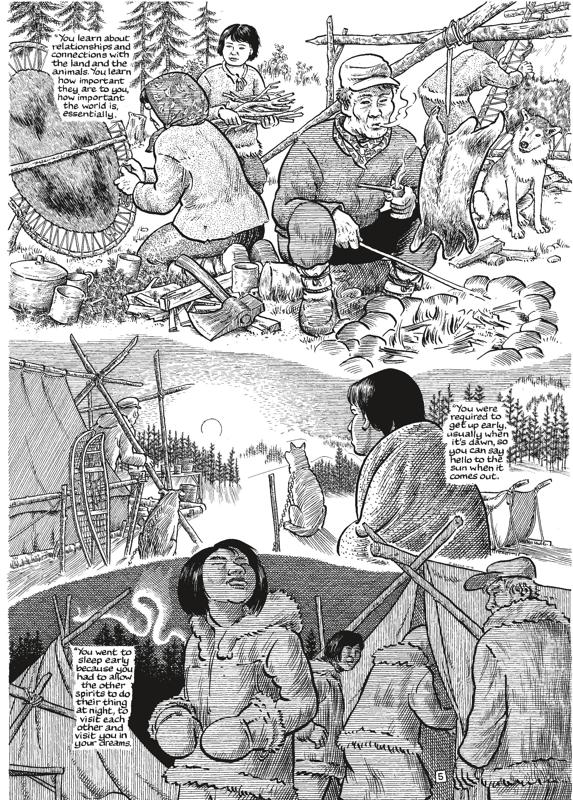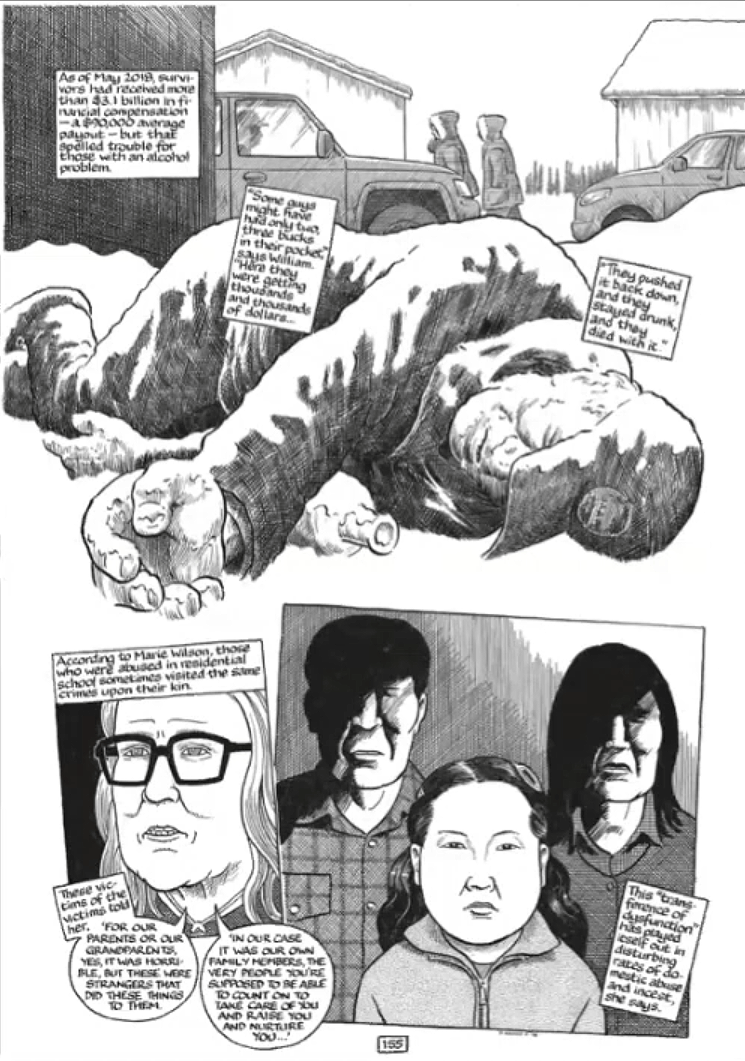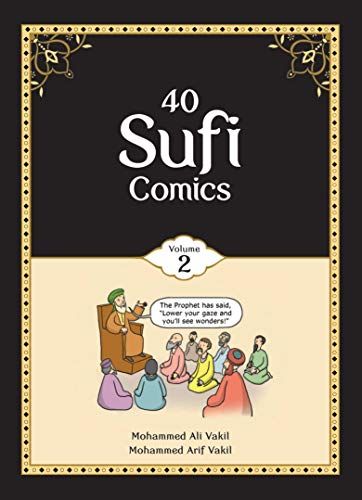CSotD: Book Nook; International Edition
Skip to comments
While I have personal reasons for caring about Joe Sacco’s “Paying the Land”, I don’t think they interfere with my saying that this is a stunning, important piece of work.
In it, he travels to Canada’s NWT to report on the Dene people and the impact on them of the modern world and, specifically, the fracking of their oil and gas reserves.
To start with, Sacco is the journalist we’d all wish to be, plus he adds an extraordinary talent for drawing, rather than writing down, what he has found.
I wrote about this several years ago when he was in town, and the words still express my professional admiration for his journalistic chops.
And I’m embedding at the end of today’s posting a lengthy YouTube video in which Art Spiegelman interviews Sacco on the project, which covers the artistic aspects.
My other potential conflict is that I am particularly interested in the issues of indigenous people generally and the Dene specifically.

The Dene are a very large, somewhat diverse group of First Nations people living in northern Canada and who, in a fascinating bit of anthropology, are related to the Apache and Navajo, who couldn’t be much further away on the continent but emigrated within historical, though pre-Columbian, times.
The Dene homelands are remote enough, even now, that Sacco was able to interview people who remember the old ways, which is fortunate, since doing so is the only proper way to tell of their current lives.
My long-distance, impersonal contact is, first, through a CBC television series, “North of 60,” which was set in a fictional Dene settlement, and through research for a historical fiction piece for kids that I wrote about the voyageurs who, 200 years ago, traded in the Peace River area of British Columbia among the Dane-zaa, one of many Dene tribes.
I’ve also had occasion over my years of reporting to run fact checks with various tribal historians — Lakota, Comanche, Hopi and others — as well as to have more extended in-person interactions with Mohawk people, both official and personal.
The stereotype that native people are closed off and uncommunicative is simply false: I’ve invariably found them hospitable and helpful, their conversations sprinkled with a dry means of expression that is often humorous.

But there is a limit to what they share with outsiders, and, while Sacco acknowledges that, he also gets well past the barriers lesser journalists come up against, in reporting, for example, not just the facts of the horrific residential schools but their long-term impact on Dene culture and individual lives.
My personal interest in the overall topic notwithstanding, this is a fascinating, important and extraordinarily well-done book, with my only caution being not to begin reading it when you have anything else on your schedule.
One of the cultural things Sacco captures is that, when it is time to talk, time itself fades away.
Wisdom from the opposite hemisphere

Another graphic not-a-novel that has come my way recently is “40 Sufi Comics – Volume 2,” by the Vakil brothers, Mohammed Ali and Mohammed Arif.
While Sacco’s portrait of the Dene people is thick, dense and will pull you in for extended reading periods, these Sufi comics are quite the opposite: Short and intended to be read slowly and one by one.
The Sufi are the most light-hearted of Muslims and their lore includes the stories of the wise fool, Nasreddin Hodja, who taught important lessons through humor.
The first volume of this series was so well done that I hesitated to pick up the sequel, though the fact that they were making it ridiculously affordable on Kindle made that easier. (And an e-book of Volume One is free!)
What I found, to my pleasure, is that, rather that dig into lesser stories for the second volume, they shifted somewhat, from parables to metaphors.
For a Christian-based equivalence, you might contrast the parables of “The Prodigal Son” and “The Good Samaritan,” and the quicker metaphors of “The Widow’s Mite” and “The Mustard Seed.”
There’s no loss of wisdom, but I would suggest, particularly as a gift for middle-school and older young readers, that you start them off with the first volume, since the longer stories are easier to parse for meaning.
Here’s an example from the new book:



Sufi wisdom is unapologetically religious, but, as expressed in this collection, is so interwoven with life that it is open and inviting not only for those of different religions, but for those of no religion at all beyond a strong belief that “living well” is an ongoing, internal, ethical process.
Which, to tie today’s books together, reminds me of a conversation with a cultural expert from Standing Rock. After covering what I’d actually called him for, I asked him about something I’d read that said that religious beliefs were so intrinsic to Lakota culture that they had no word for “religion” in their language.
It provoked one of those dry chuckles. “No, we have a word for ‘religion’,” he laughed, and I suspect Sufi masters would respond with the same droll amusement.
In any case, you certainly don’t have to be Muslim to find these stories both amusing and instructive, and, in particular, those who enjoy zen koans or the Stoics, Epictetus and Marcus Aurelius, will find it easy to relate, and to learn.
And this recommendation: The book is something to buy and leave in a place where it will often be picked up and leafed through, because its short bits of light philosophy will stick in the mind well after you’ve put it back down.
Or maybe that’s how you use your Kindle anyway.
Now settle back and spend some time with a pair of graphic storytelling masters.
Comments 2
Comments are closed.